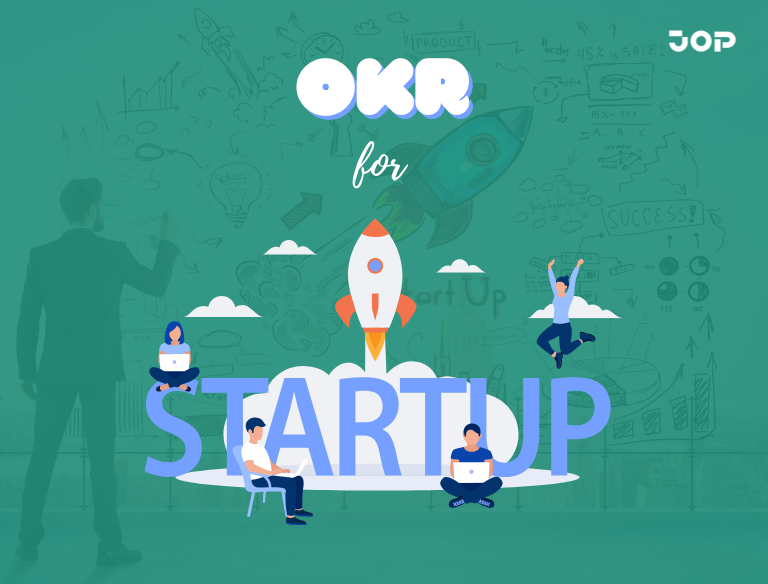In the world of project management, having a clear roadmap and defined objectives is crucial for success. Objectives and Key Results (OKRs) provide a powerful framework that helps teams effectively set and achieve their goals. In this article, we will explore the significance of OKRs in project management and how they can drive successful outcomes.

Introduction to OKRs
OKRs are a goal-setting methodology that originated in Intel and gained popularity through their implementation at Google. The concept revolves around setting ambitious yet attainable objectives and defining key results that measure progress towards those objectives. Unlike traditional goal-setting methods, OKRs encourage transparency, alignment, and continuous improvement.
The Importance of OKRs in Project Management
Projects often involve multiple stakeholders, complex tasks, and evolving priorities. Without a clear focus and shared understanding of the project’s objectives, teams can easily lose track of their purpose and get overwhelmed by competing demands. This is where OKRs come into play, offering several benefits for effective project management.
Setting Clear Objectives
To leverage the power of OKRs in project management, it is essential to start by defining clear and actionable objectives. This process involves:
Defining the Vision and Mission
Before diving into the specific project objectives, aligning the project’s vision and mission with the organization’s overall goals is important. This alignment ensures that the project contributes to the broader strategic objectives and provides a sense of purpose to the team members.
Identifying Key Results
Once the objectives are established, it’s time to identify key results that indicate progress towards achieving those objectives. Key results should be measurable and quantifiable, allowing teams to track their performance objectively. These results serve as milestones and provide a tangible way to assess project success.
Aligning OKRs with Project Goals
OKRs should seamlessly align with the goals of the project. By breaking down the objectives into actionable tasks and assigning responsibilities, project managers can ensure that everyone is working towards the same goals.
Breaking Down Objectives into Actionable Tasks
Each objective should be further divided into specific tasks that are required to achieve it. This breakdown helps create a clear action plan and ensures that no crucial steps are overlooked. Assigning these tasks to the appropriate team members promotes accountability and collaboration.
Assigning Responsibilities
Clearly defining roles and responsibilities within the project team is essential for efficient execution. Each team member should clearly understand their individual objectives and how they contribute to the overall project success.
Tracking and Measuring Progress
Regular check-ins and reviews are essential to keep projects on track. OKRs provide a framework for tracking and measuring progress effectively.
Regular Check-ins and Reviews
Teams should schedule regular check-ins to discuss progress, address challenges, and provide support where needed. These check-ins create a space for open communication, collaboration, and feedback.
Utilizing Key Performance Indicators (KPIs)
Key Performance Indicators (KPIs) play a vital role in measuring progress towards the key results. By defining relevant KPIs for each key result, project managers can objectively assess the project’s performance and make data-driven decisions.
Adapting and Iterating
Flexibility and agility are crucial elements of successful project management. OKRs promote adaptability by encouraging teams to learn from feedback and adjust their objectives and strategies accordingly.
Flexibility and Agility in Project Management
Projects often encounter unforeseen challenges or changing market conditions. OKRs allow teams to pivot and adapt their objectives, ensuring that they remain relevant and aligned with the project’s evolving needs.
Learning from Feedback
OKRs create a feedback loop that encourages continuous learning and improvement. By regularly reviewing progress and seeking feedback from stakeholders, teams can identify areas for growth and make necessary adjustments to their objectives and strategies.
Benefits of Using OKRs in Project Management
Implementing OKRs in project management offers several benefits that contribute to project success:
- Improved Focus and Alignment: OKRs provide a clear focus and ensure that everyone is aligned with the project’s objectives.
- Enhanced Accountability: OKRs promote accountability by clearly defining individual responsibilities and tracking progress transparently.
- Increased Motivation: Clear objectives and measurable key results provide team members a sense of purpose and motivation.
- Better Communication and Collaboration: Regular check-ins and reviews foster open communication, collaboration, and knowledge sharing among team members.
- Adaptability and Agility: OKRs enable teams to adapt and pivot when necessary, ensuring that the project remains on track despite challenges.
Conclusion
OKRs offer a valuable framework for project management, enabling teams to set clear objectives, align their efforts, track progress, and adapt as needed. By incorporating OKRs into project management practices, organizations can enhance focus, accountability, and ultimately achieve successful outcomes. Embracing OKRs empowers teams to work towards their goals with clarity, purpose, and continuous improvement.
FAQs
OKR stands for Objectives and Key Results.
- Can OKRs be used in any type of project?
A: Yes, OKRs can be applied to various projects across different industries and domains.
- How often should OKRs be reviewed and updated?
OKRs should be reviewed regularly, ideally on a quarterly basis, to ensure they remain relevant and aligned with the project’s progress.
- What are some common challenges in implementing OKRs?
Common challenges include setting overly ambitious objectives, lacking alignment with broader goals, and difficulty defining measurable key results.
- How can OKRs contribute to project success?
OKRs provide a structured approach to goal setting, promote alignment and accountability, encourage adaptability, and foster continuous learning and improvement, all of which contribute to project success.

Gaurav Sabharwal
CEO of JOP
Gaurav is the CEO of JOP (Joy of Performing), an OKR and high-performance enabling platform. With almost two decades of experience in building businesses, he knows what it takes to enable high performance within a team and engage them in the business. He supports organizations globally by becoming their growth partner and helping them build high-performing teams by tackling issues like lack of focus, unclear goals, unaligned teams, lack of funding, no continuous improvement framework, etc. He is a Certified OKR Coach and loves to share helpful resources and address common organizational challenges to help drive team performance. Read More
 Gaurav Sabharwal
Gaurav Sabharwal
